
Enarab-DSR Capsule
Manufacturer
Incepta Pharma
Salt Composition
Domperidone (30mg) + Rabeprazole (20mg)
Key Information
Short Description
Enarab-DSR Capsule is a combination medicine used to treat gastroesophageal reflux disease (Acid reflux). It works by relieving the symptoms of acidity such as heartburn, stomach pain, or irritation.
Dosage Form
Capsule SR
Introduction
Enarab-DSR Capsule is a combination medicine used to treat gastroesophageal reflux disease (Acid reflux). It works by relieving the symptoms of acidity such as heartburn, stomach pain, or irritation. It also neutralizes the acid and promotes easy passage of gas to reduce stomach discomfort.
Directions for Use
Take this medicine in the dose and duration as advised by your doctor. Swallow it as a whole. Do not chew, crush or break it. Enarab-DSR Capsule is to be taken empty stomach.
Safety Information
Side Effects
No common side effects listed.
Alcohol Warning
Caution is advised when consuming alcohol with Enarab-DSR Capsule. Please consult your doctor.
Breastfeeding Warning
Enarab-DSR Capsule is probably unsafe to use during breastfeeding. Limited human data suggests that the drug may pass into the breastmilk and harm the baby.
Pregnancy Warning
Enarab-DSR Capsule may be unsafe to use during pregnancy. Although there are limited studies in humans, animal studies have shown harmful effects on the developing baby. Your doctor will weigh the benefits and any potential risks before prescribing it to you. Please consult your doctor.
How it works
Enarab-DSR Capsule is a combination of two medicines: Domperidone and Rabeprazole. Domperidone is a prokinetic which works on the upper digestive tract to increase the movement of the stomach and intestines allowing the food to move more easily through the stomach. Rabeprazole is a proton pump inhibitor (PPI) which works by reducing the amount of acid in the stomach which helps in the relief of acid-related indigestion and heartburn.
Quick Tips
You have been prescribed Enarab-DSR Capsule for the treatment of acidity and heartburn. It is a well-tolerated medicine and provides relief for a long time. Take it one hour before the meal, preferably in the morning. Inform your doctor if you get watery diarrhea, fever or stomach pain that does not go away. Inform your doctor if you do not feel better after taking it for 14 days as you may be suffering from some other problem that needs attention.
Related Medicines
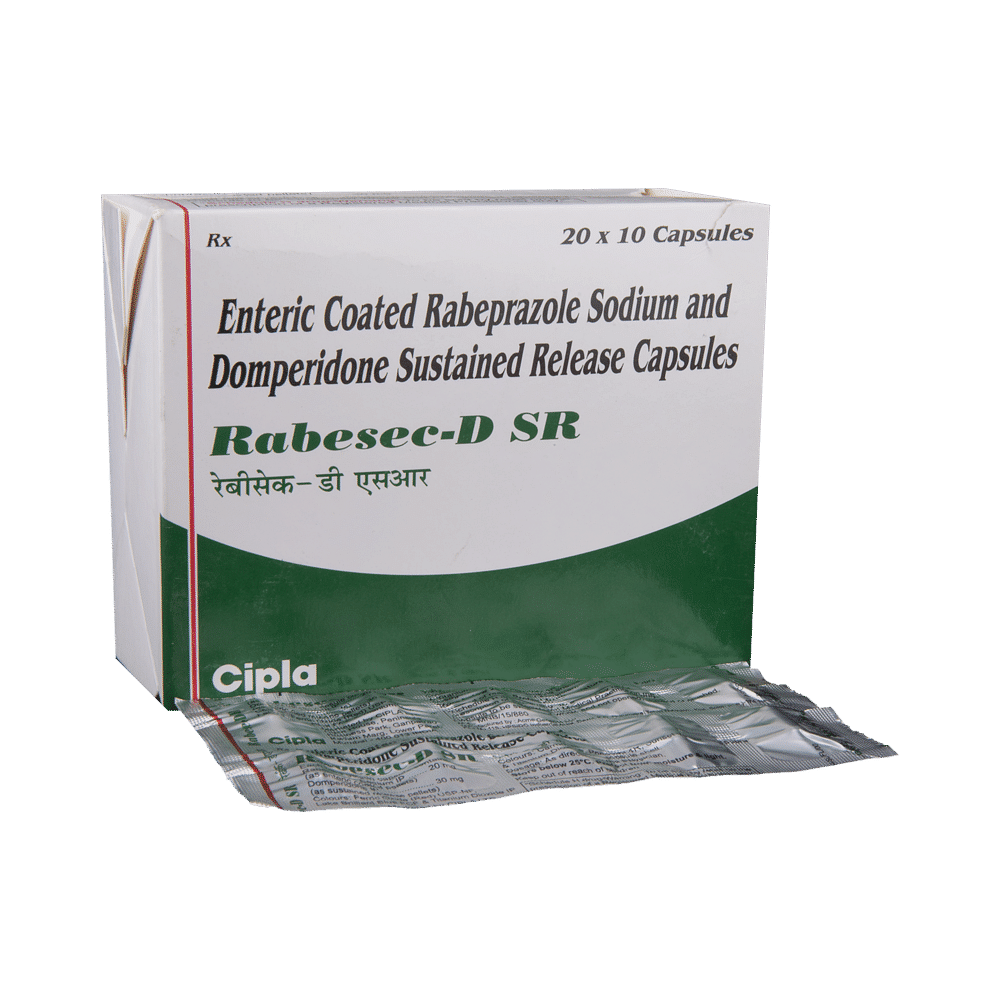
Rabesec-D SR Capsule
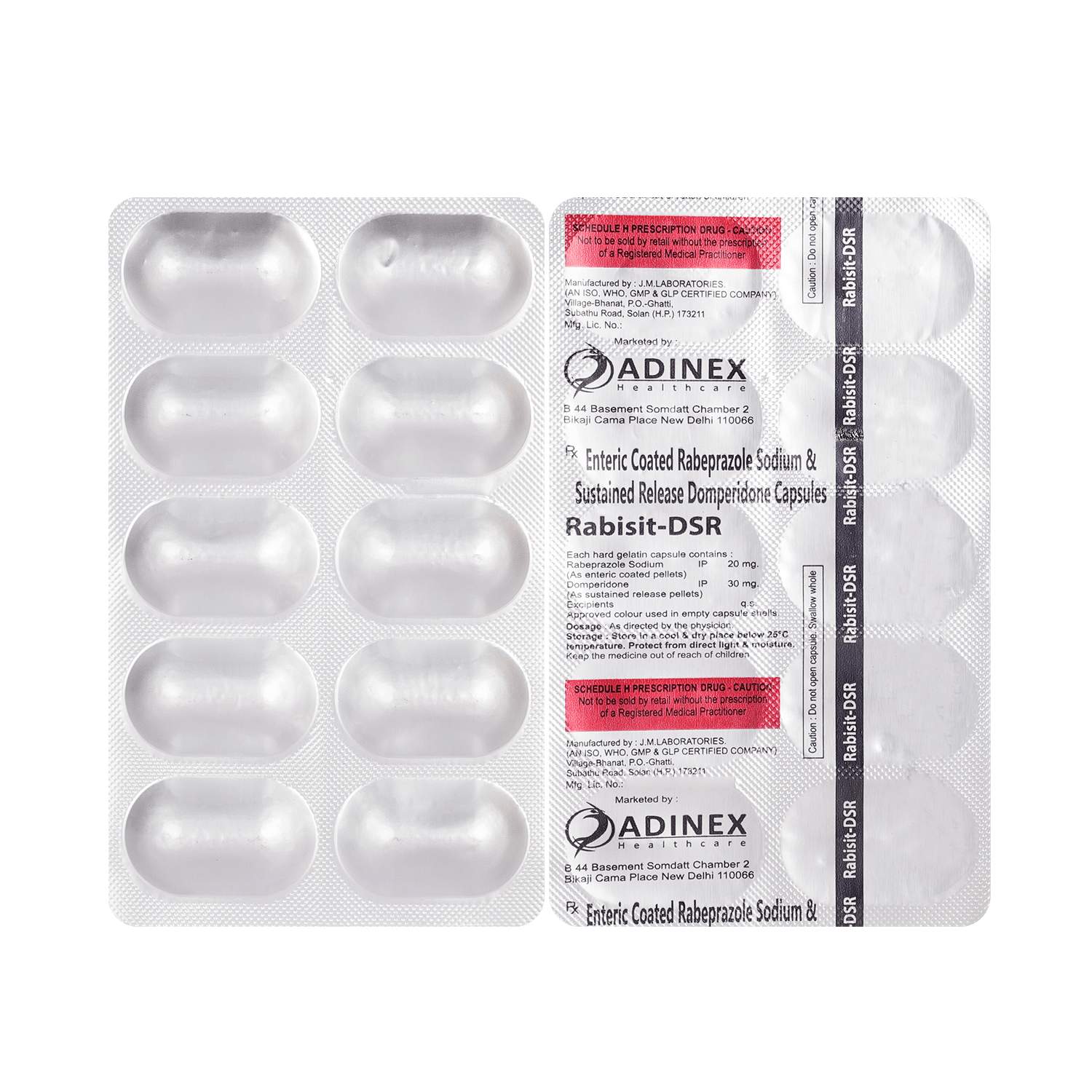
Rabisit-DSR Capsule
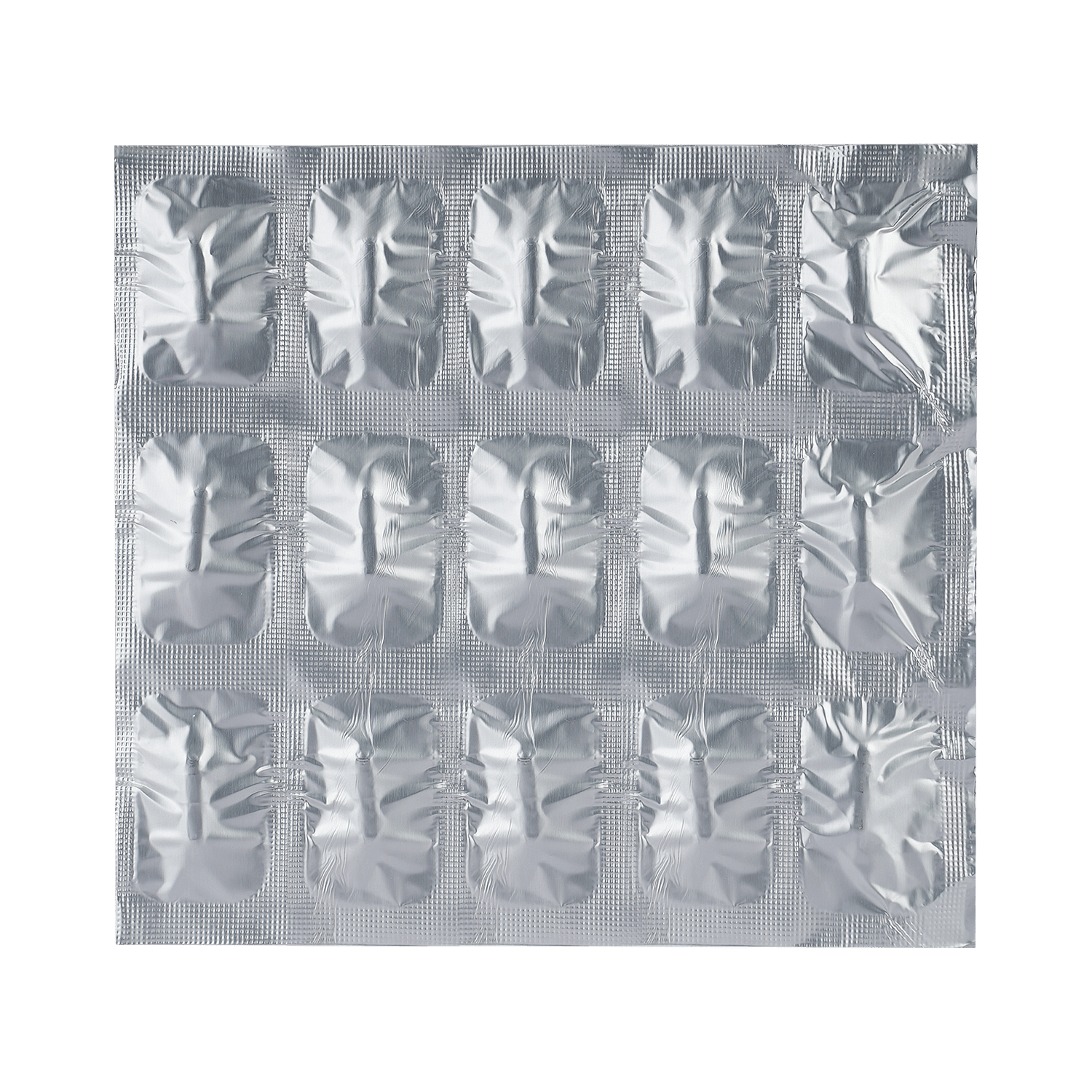
Jardom Capsule
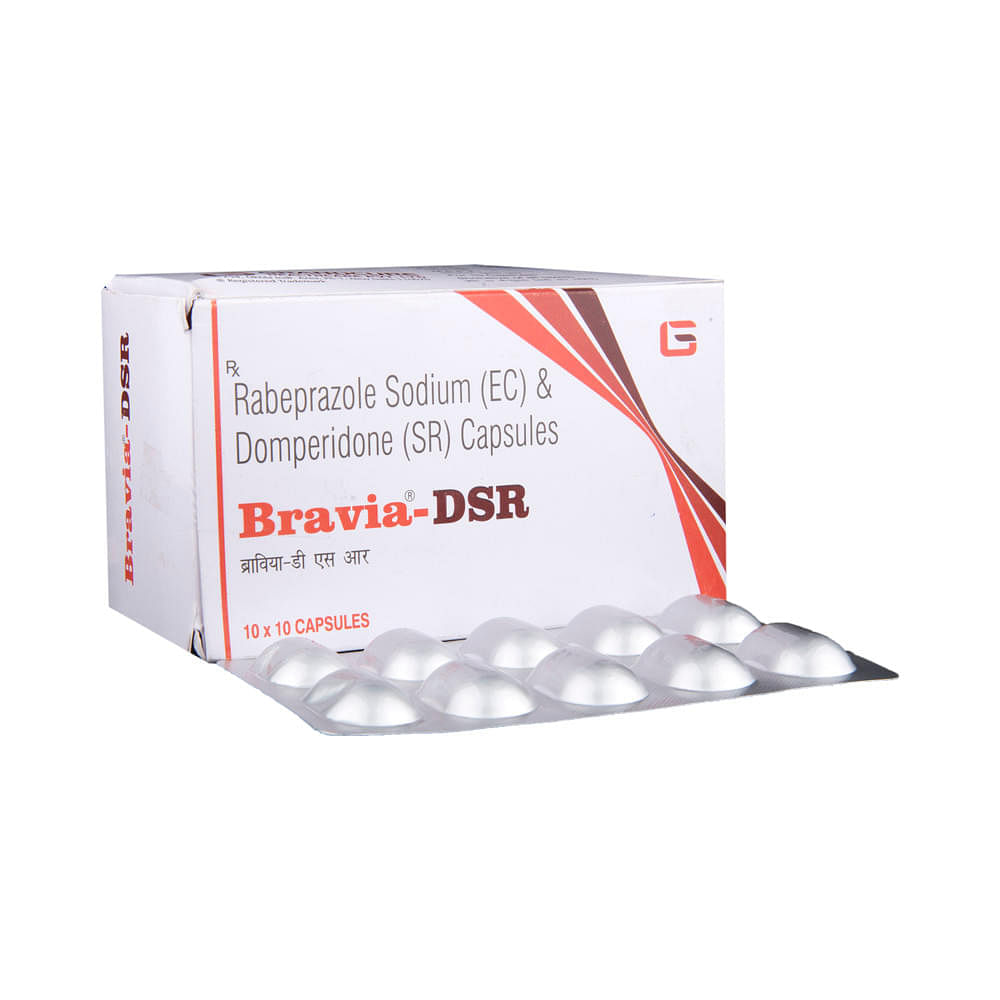
Bravia-DSR Capsule

Rabonix-DSR Capsule
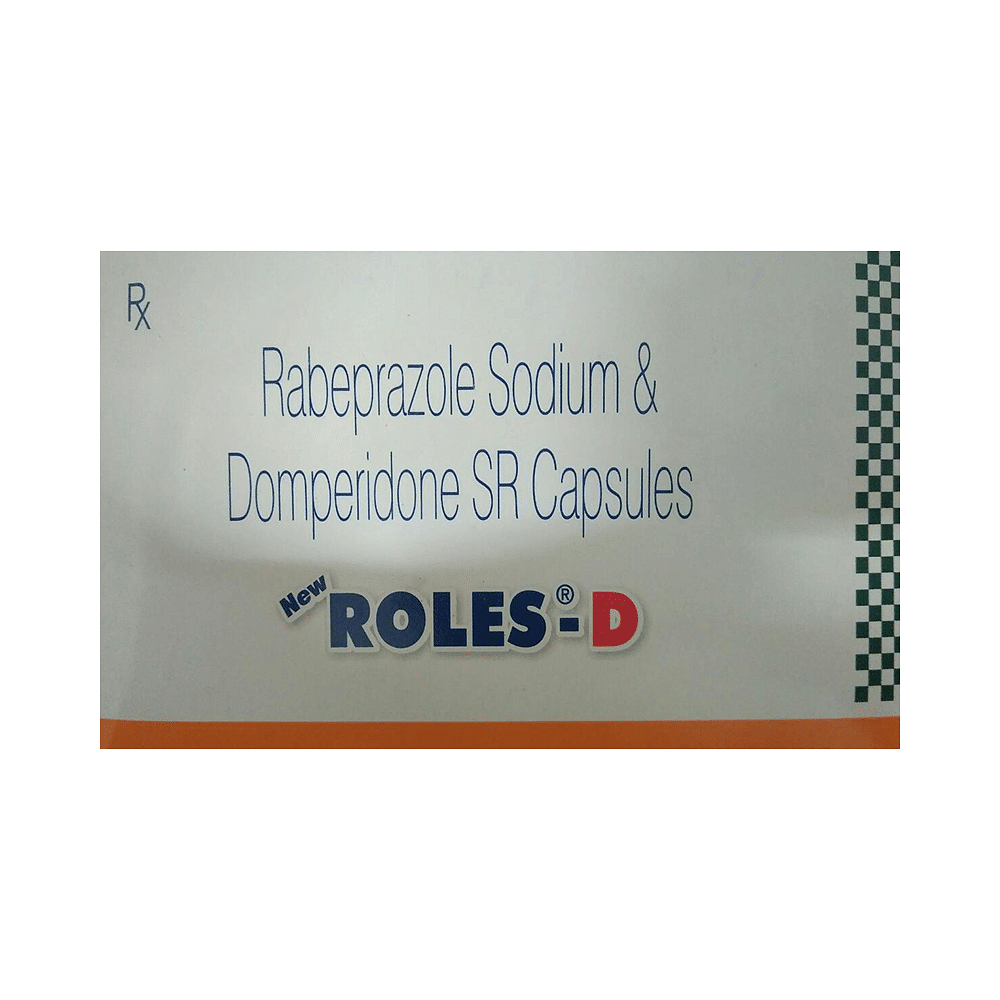
Roles-D Capsule
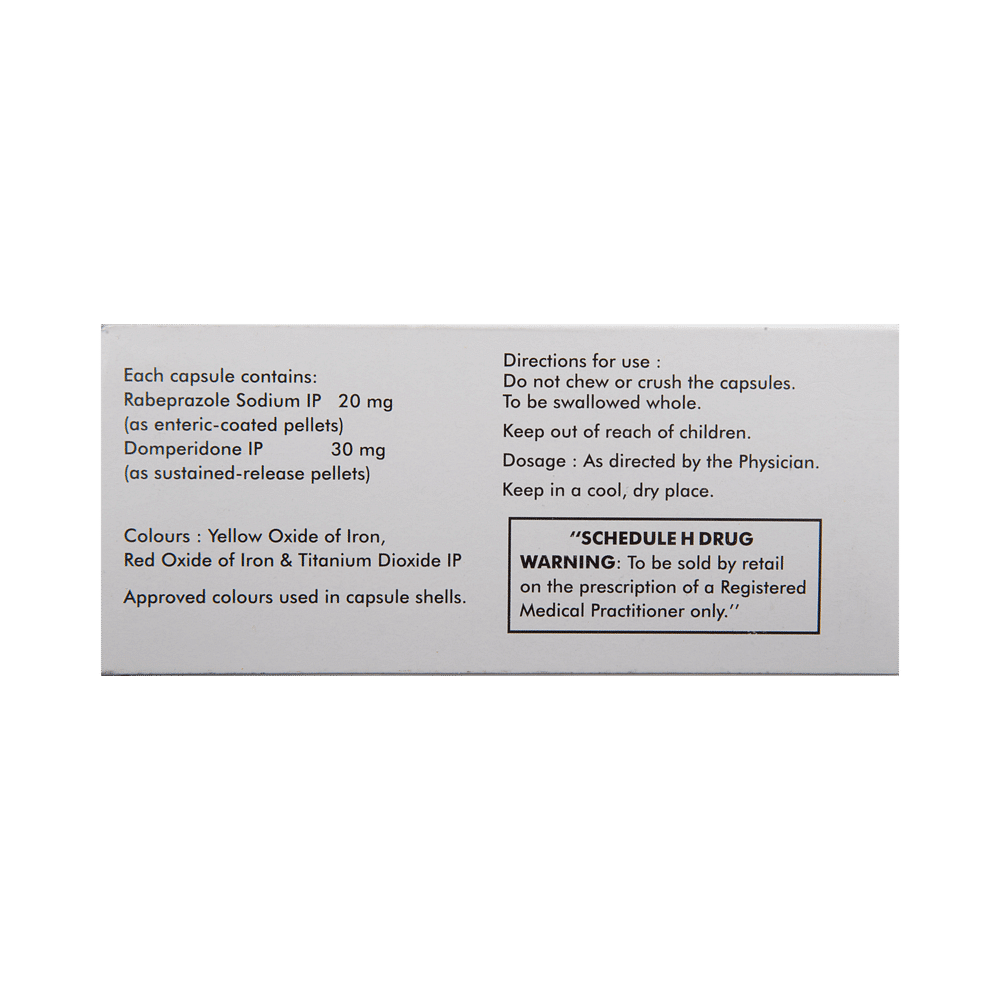
Helirab-D Capsule
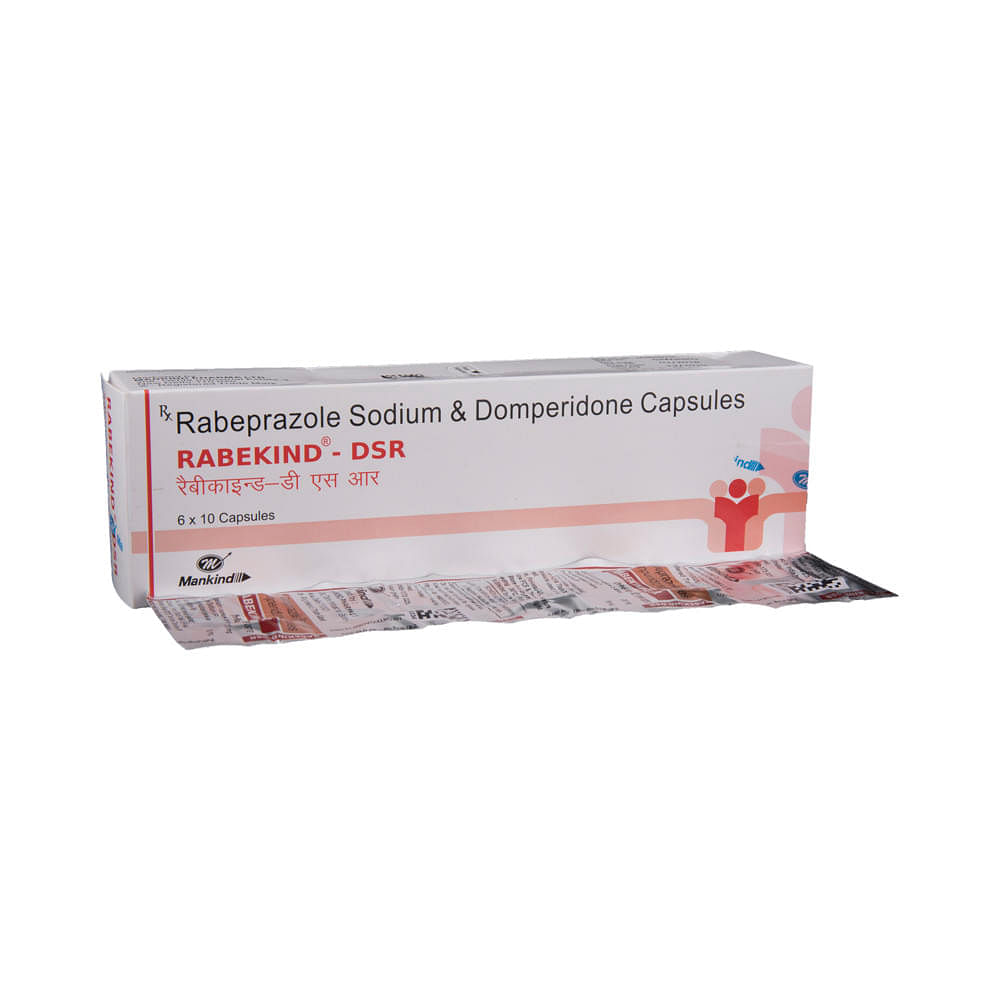
Rabekind-DSR Capsule
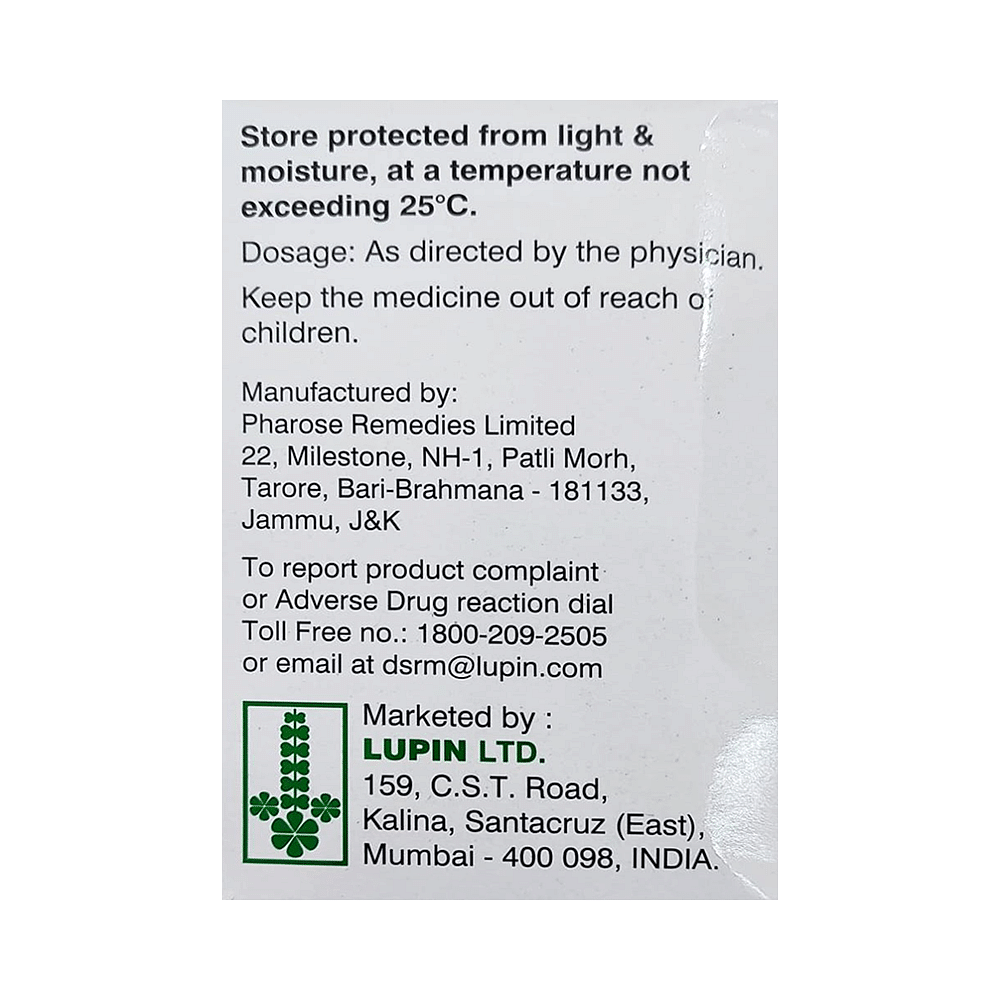
Rablet D Capsule
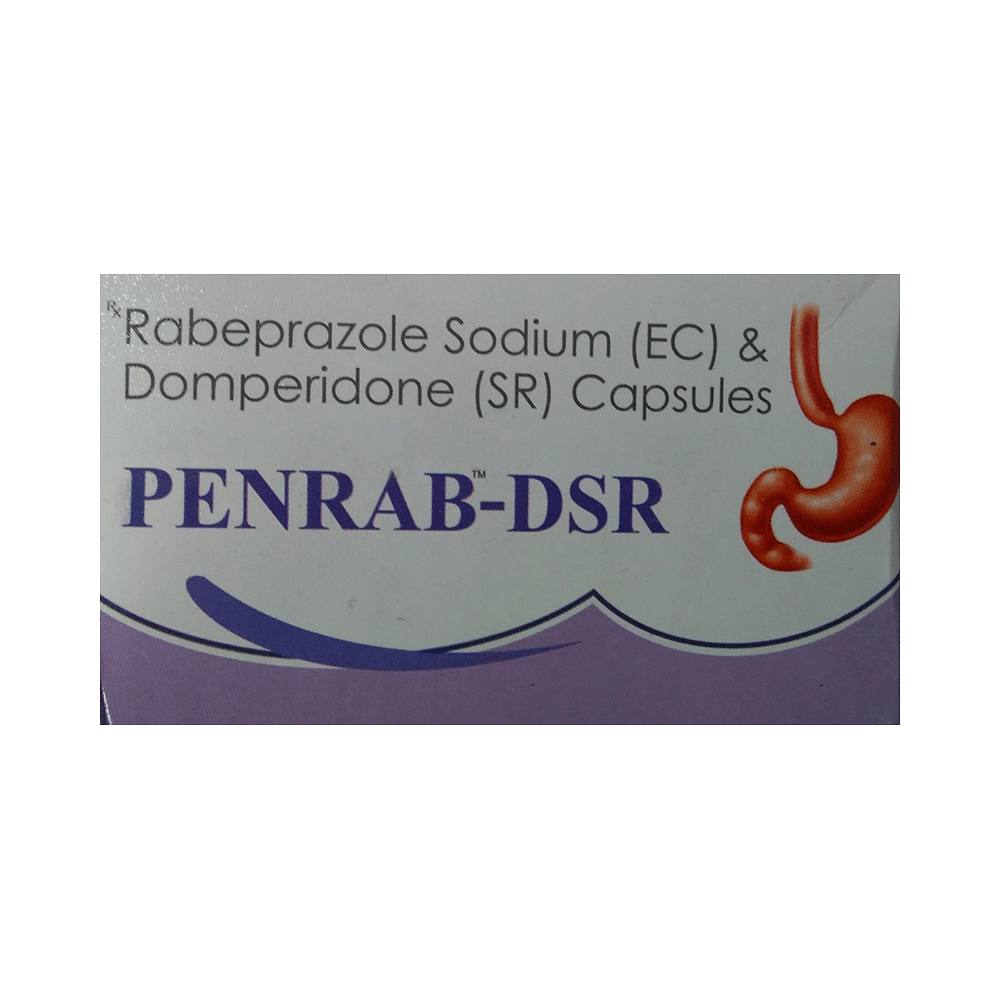
Penrab-DSR capsule
Frequently asked questions
What is Enarab-DSR Capsule?
Enarab-DSR Capsule is a combination medication that contains two active ingredients: Domperidone and Rabeprazole. It is used to treat conditions such as acidity, heartburn, gastroesophageal reflux disease (GERD), and gastric or duodenal ulcers.
What are the contraindications of Enarab-DSR Capsule?
The use of Enarab-DSR Capsule is not recommended for individuals with a known hypersensitivity to either Rabeprazole or Domperidone, or any other inactive ingredients in the medication. Additionally, caution should be exercised in patients with underlying kidney or liver disease.
Can the use of Enarab-DSR Capsule cause dry mouth?
Yes, Enarab-DSR Capsule can cause dryness of the mouth, a side effect attributed to Domperidone. To manage this issue, it is essential to drink plenty of water and avoid smoking or excessive alcohol consumption.
Can the use of Enarab-DSR Capsule cause diarrhea?
Yes, patients taking Enarab-DSR Capsule may experience diarrhea. To alleviate this side effect, it is recommended to drink plenty of water and avoid consuming fatty or fried foods while on medication.
What is the recommended storage condition for Enarab-DSR Capsule?
To maintain the efficacy and safety of Enarab-DSR Capsule, it should be stored in its original container, tightly closed. Dispose of any unused medicine responsibly, ensuring it does not come into contact with children or pets.
Is it safe to use Enarab-DSR Capsule?
Enarab-DSR Capsule is generally considered safe for most patients. However, some individuals may experience common side effects such as diarrhea, stomach pain, flatulence, dryness in the mouth, dizziness, and headache. If persistent problems occur while taking this medication, consult a doctor.
What is the best time to take Enarab-DSR Capsule?
For optimal results, take Enarab-DSR Capsule before the first meal of the day or on an empty stomach. Adhere strictly to your prescribed dosage schedule and consult with a healthcare professional for personalized guidance.
Can the use of Enarab-DSR Capsule cause abnormal heartbeat?
Yes, patients taking Enarab-DSR Capsule may experience an irregular heartbeat (serious arrhythmias). Although this is a rare side effect, individuals over 60 years old may be at higher risk. Consult with your healthcare provider to discuss potential risks and necessary precautions.


